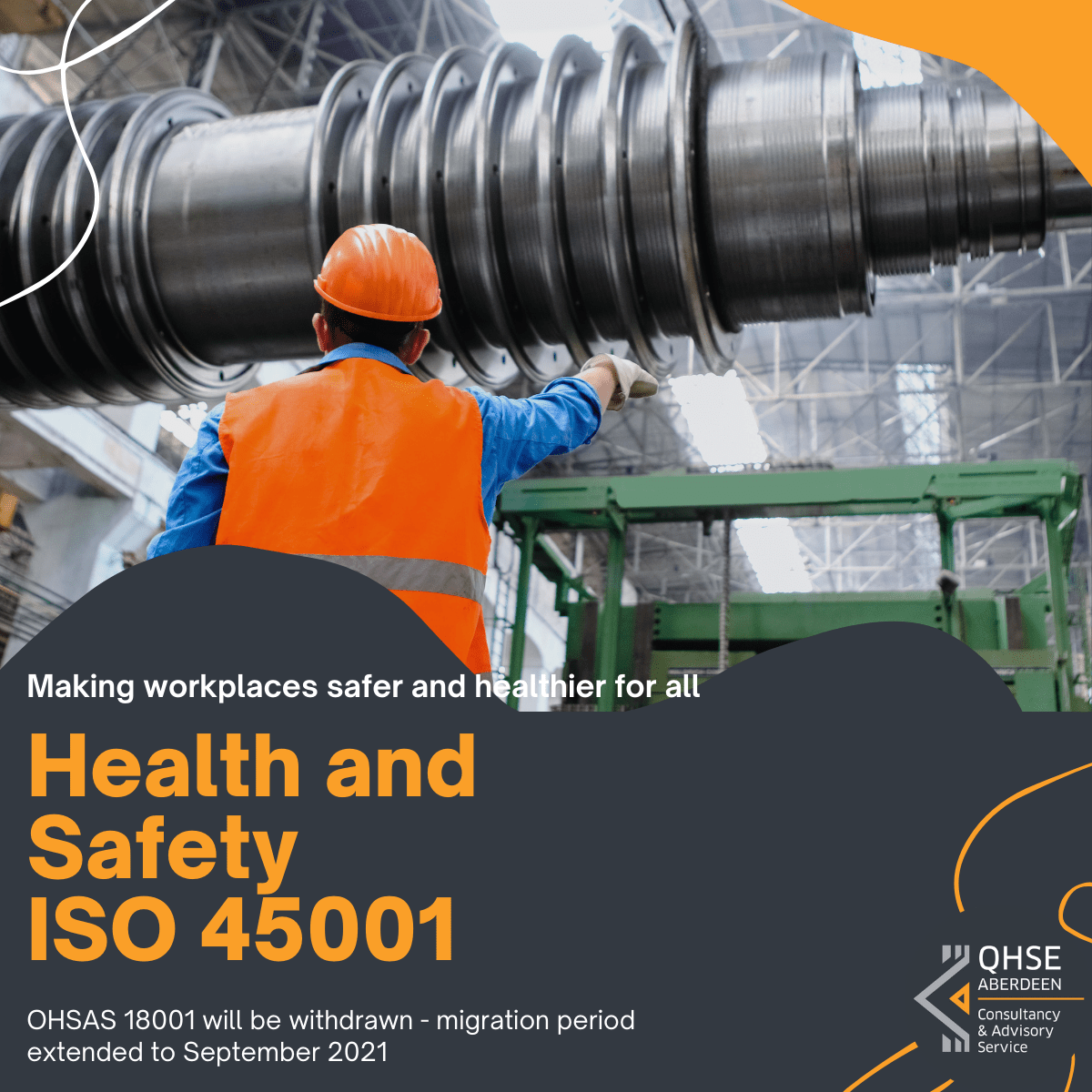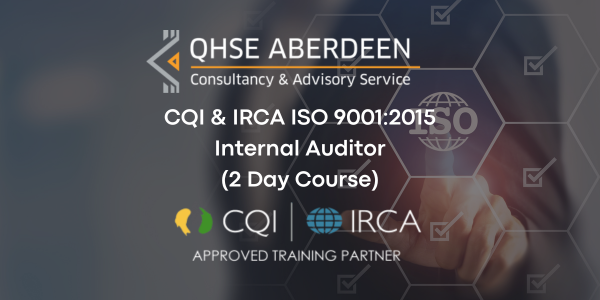Who needs ISO 45001 certification and what does it entail?
Following on from our “WHO NEEDS ISO 9001” Article in August, we would now like to introduce you to ISO 45001 – Occupational health and safety management system.
Introduced in March 2018, it’s replacing the outdated standard (BS OHSAS 18001) which is now withdrawn.
Organisations are not required by law to implement ISO 45001 or any other similar management systems for that matter, but they can help provide a structured framework for ensuring a safe and healthy workplace.
ISO 45001 specifies the requirements for an occupational health and safety (OH&S) management system and gives guidance for its use. It is applicable to any Company (regardless of its size, sector or activities) that wishes to develop, implement and maintain an OH&S management system to improve occupational health and safety.
Will our business benefit from ISO 45001?
Absolutely, ISO 45001 Certification benefits include:
- Reduced incident and accident rates
- Improved performance monitoring and accident reporting
- Positions your business as industry leaders
- Improved staff levels of compliance with health and safety legislation
- Better control of Occupational Health & Safety risks
- Decrease in legal & civil accident costs
- Decrease in insurance premiums
- Improved reputation and customer investment opportunities
- Reduced absenteeism and improved employee morale, leading to increased productivity
- Greater involvement and commitment from employees and the management team, resulting in improved health and safety culture
- Establish controls to ensure legal compliance
- Creation of a health and safety culture, whereby employees are encouraged to take an active role in their own OH&S
ISO 45001 adopts a risk-based approach that ensures it is effective and undergoes continual improvement to meet your organisations ever-changing systems and processes.
ISO 45001 shares a high-level structure (HLS), identical core text and terms and definitions with other ISO management system standards such as ISO 9001:2015 and ISO 14001:2015, simplifying the integration process.
Most of our Customers start out by enquiring about the process, duration and costs of gaining ISO Certification. This comes about due to the fact they have heard how it can streamline the business and perhaps they have been asked if they have a certain ISO Certification during a tendering process.
Depending on the size of the organisation and what they already have in place, it can take on average 2 – 3 weeks to develop and implement ISO 45001 – Occupational health and safety management system from scratch. Our consultants work closely with our customer to develop the bespoke ISO 45001 Management System. Our clients may choose to be hands on or off depending on their time restraints etc. with some of our customer base who like to completely outsource their QHSE systems to ourselves, freeing their time for what they do best, only checking in for meetings and updates.
Our specialist Health & Safety Consultants can advise and assist you with all aspects of ISO 45001 from development & implementation to certification and maintenance. As with all management certification, periodic audits are the best way to check your system is working. The organisation should ensure that any auditor or certifier you use has evidence that they’re competent to a recognised standard i.e. Lead Auditor Qualification.
QHSE Aberdeen have also developed a range of training courses to support your organisation and staff i.e. Internal Auditor Training, Manual Handling, Confined space, CoSHH, etc..
I hope this brief insight into ISO 45001 Occupational Health & Safety Management Systems has proved to be beneficial and encouraged you to look further into gaining an ISO Certification to grow your business.
There are many ISO Standards, but these are the most popular….
Quality Management Standard ISO 9001 to help work more efficiently, promotes process performance and effectiveness, and continual improvement.
Environmental Management Standard ISO 14001 to help reduce an organisations negative impact on the environment and be more sustainable.
Health and Safety Standard ISO 45001 to make workplaces safer and healthier for all.
Information Security Standard ISO 27001 to help keep sensitive information secure. This is not an IT standard, instead ISO 27001 uses a holistic process approach to managing information security across your business.
Energy Management Standard ISO 50001 provides a practical way to improve energy use.
Food Safety Standard ISO 22000 to help prevent food from being contaminated and ensure safe for consumption.
If you would like to discuss where to start with ISO Management Systems or need advice or assistance with any QHSE topic, then please get in touch, we would be more than happy to help. http://qhseaberdeen.com/



